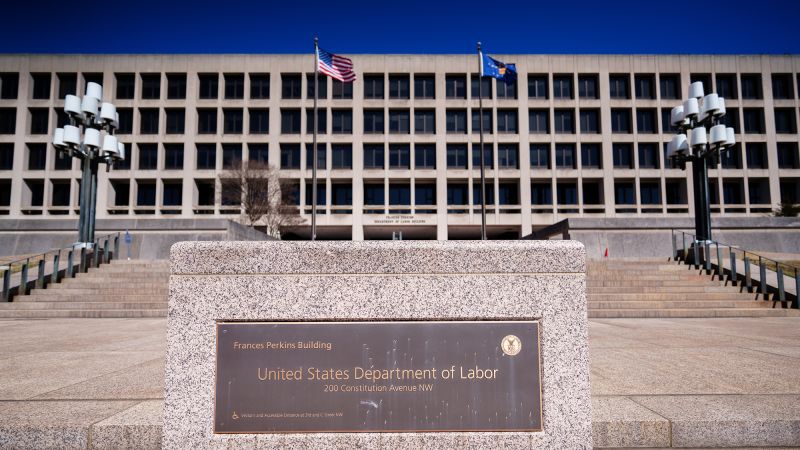On a noteworthy Monday, President Donald Trump made headlines by nominating E.J. Antoni as the new commissioner for the Bureau of Labor Statistics (BLS). This development comes on the heels of Trump’s dismissal of the previous commissioner, Dr. Erika McEntarfer, whom he accused of tampering with data without providing any substantiated evidence. The BLS is a vital federal agency responsible for collecting and disseminating data concerning job statistics and inflation rates, both crucial indicators of the nation’s economic health.
In his announcement, Trump expressed enthusiasm for his pick, referring to Dr. E.J. Antoni as a “Highly Respected Economist” in a post on his social media platform, Truth Social. Antoni currently serves as the chief economist at the Heritage Foundation, a prominent conservative think tank known for advocating fiscal conservatism and market-oriented policies. His appointment signals a possible shift in the bureau’s approaches to labor statistics since Antoni has previously criticized the BLS’s methodologies for data gathering.
Antoni’s nomination follows a controversial decision by Trump to terminate McEntarfer just days ago, amid reports of disappointing job numbers for July. The report indicated not only stagnant job growth but also significant downward revisions of employment data for the preceding months of May and June. In a move that shocked many, Trump accused McEntarfer of manipulating this data for “political purposes” intended to negatively impact Republican strategies.
In a sensational post on Truth Social, Trump declared that the last jobs report was “RIGGED,” alleging that adjustments were made to conceal misleading political numbers. He asserted that these alterations were meant to diminish the perceived success of Republican economic policies. Such explosive claims culminated in a unilateral decision to replace McEntarfer, who had assumed her role after being confirmed by the Senate in a bipartisan vote earlier this year.
McEntarfer’s dismissal ignited significant backlash from various economists who voiced concerns that this action could significantly undermine the credibility of the BLS as an unbiased data provider. Former BLS commissioner William Beach, who was once nominated by Trump, publicly condemned the firing, stating that there were “no grounds at all” for such a decision and emphasizing the potential harm to the statistical system’s integrity. Beach pointed out that any future reports from the BLS might be viewed with skepticism, particularly if they appear unfavorable, which could propagate doubts regarding political manipulation of labor data.
The BLS serves as a cornerstone of federal data that informs a plethora of decisions spanning both public and private sectors. Its findings play pivotal roles in everything from determining Social Security benefit adjustments to guiding corporate hiring and layoffs, influencing policymakers and business leaders’ assessments of the economy’s health.
However, worries about the accuracy of BLS reports emerged long before McEntarfer’s termination. Some economists cautioned that budget cuts, layoffs, and hiring freezes instigated by the Trump administration could compromise the bureau’s reliability. The agency had already begun scaling back its data collection efforts, with notices earlier this year detailing complete suspensions of data collection in three U.S. cities. Additionally, it was noted that there was an approximate 15% reduction in data gathering across the rest of the nation.
In July, during evaluations of these budgetary constraints, Federal Reserve Chair Jerome Powell was approached for his opinion. He responded emphatically, stating that government data represents “the gold standard” in data collection, underscoring the necessity for high-quality and reliable information. Thus, the unfolding scenario surrounding the BLS and its future leadership raises critical questions regarding the intersection of political influence, data integrity, and economic policy in the United States, particularly as the nation grapples with an evolving economic landscape.
In conclusion, as E.J. Antoni assumes his role, the future of the BLS under his leadership, coupled with the ongoing scrutiny of political influences on labor statistics, will be pivotal in shaping the public’s trust in vital economic data. The implications of these developments could resonate across various sectors, making it essential to closely monitor the impacts of such administrative changes.











